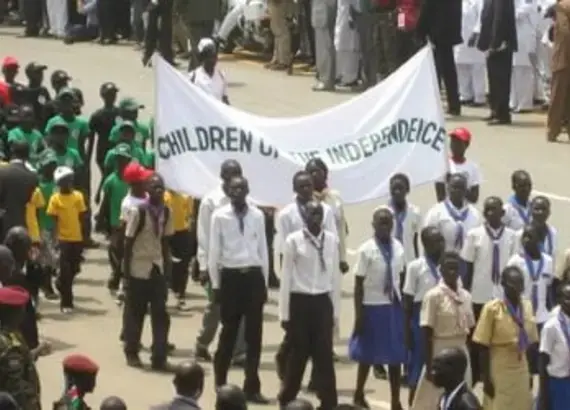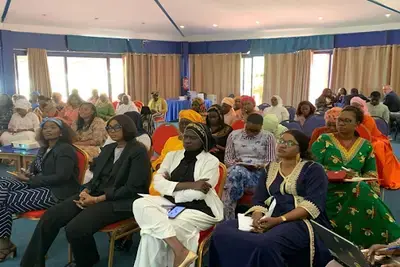
Success Story
Opinion Study Shows that Citizens in South Sudan Want a Democratic and Just Government
As South Sudan celebrates its first week as a new nation, preliminary focus group research released today by NDI shows that citizens of the world’s youngest country have growing expectations for their government.
While citizens give high marks to the Government of South Sudan (GoSS) for staging the successful independence referendum on Jan. 9, they want to curb corruption and tribalism that they say permeates government at every level. The findings, presented by NDI’s Traci Cook at an event at the United States Institute of Peace, also show that major citizen concerns revolve around security and development.
“What we heard in the past was a focus on separation,” Cook said. “What we found in this study is that they are turning the corner and beginning to look internally.”
Participants complained that discrimination based on tribal affiliation is rampant in government employment and that it is impossible to win a government appointment without some kind of inside connection. Many felt that the lack of tribal balance means that only certain groups will experience a better life.
“Everybody has turned to politics because they see it as a means of obtaining all they need,” one participant said. “My tribe is behind because we don’t have big people in government,” according to another.
But not all citizen concerns were so pessimistic. Participants also expressed a desire to develop a good business relationship with the north (Sudan) that will benefit both countries economically.
“While the participants in the study understand the challenges their new country faces,” Cook said, “there was also great enthusiasm that after such a long, hard struggle, they have their own country. They are excited about the possibility of helping to build the great nation they want. They see themselves as the engine of development – growing crops to ensure food security, starting businesses to help with employment and providing labor for development projects.”
Many of the South Sudanese citizens interviewed even embraced the idea of paying taxes to their government so that those funds can be used to further development. They expressed a strong desire and commitment to ending tribalism. They want to build the nation through the unity of Southerners.
The research – the 12th such study NDI has carried out since 2004 – stems from 67 focus group discussions with 860 participants in all 10 states in South Sudan conducted in March and April of this year. Among the other key findings were:
- Citizens believe the solution for tribalism begins at the top with a political commitment to have a wider mix of tribes within key government institutions;
- Though negotiation is the first choice of all, most participants are supportive of using any means necessary to have Abyei join South Sudan, even if it means a return to war; and
- Most participants proudly identify themselves as South Sudanese and express a great desire for South Sudanese to think of themselves as one people – Southerners first, members of a tribe second.
Related:
Pictured above: "The Children of Independence" in South Sudan take part in the celebration for the new country on July 9.
Published July 14, 2011



